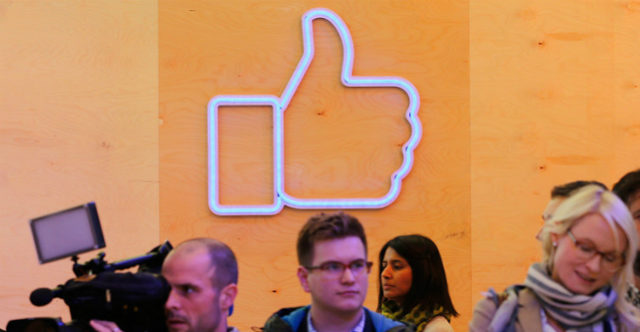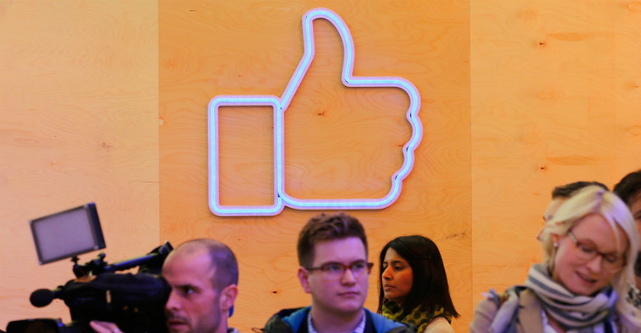Here’s what happens when you ‘like’ a brand on Facebook – StartupSmart

By Alisha Horky and Mark Pelletier
Businesses seem obsessed these days with getting you to “like” them on Facebook.
It’s difficult to browse the internet without being inundated with requests to like a company’s Facebook page or with contests and offers dependent on doing so.
From the company’s perspective, a like on Facebook offers a chance to stay “top of mind,” a marketing concept that means a consumer thinks of a specific brand first for a certain product or service by having its promotional messages show up in that user’s Facebook newsfeed.
Being liked can also be used as a metric to determine the performance of social media campaigns and other promotional activities. The more a company is liked, the more successful the promotion is thought to be.
But is this really the case? To find out, we surveyed hundreds of Facebook users to dig into the meaning and value of the Facebook like. We wanted to understand the motivations behind liking certain types of brands and discover how that affects interactions between the user and the business. We also sought to understand how this varies depending on brand type (i.e., product makers versus service providers).
Findings from two studies we undertook reveal that what likes say about consumers and what they think about the brands they like is surprisingly varied.
The loyalty of liking
For the first study, we asked 150 Facebook users to tell us about a brand that they currently like on Facebook. We then asked them to describe their motivation behind clicking the like button the first time, their interactions with the brand since liking them and any changes that have occurred in their relationship with the brand since then.
From our results, it seems that the primary reason that consumers choose to like a brand on Facebook is a sense of existing loyalty or obligation to support a brand. The largest percentage of respondents said they liked a brand simply because they felt that’s what a loyal fan should do.
The next biggest share seemed to be more focused on getting something in return for their like, such as information, social recognition or entries into contests.
Interestingly, only a relatively small percentage of respondents reported that they “liked” the brand on Facebook because they simply liked (had a positive attitude toward) the brand. This differs from loyalty in subtle ways.
For example, I may have a positive attitude toward the Rolls Royce brand after seeing its products in advertisements, product placements, etc., but I have never owned one of its cars; therefore, I do not feel loyalty or obligation to the brand. This finding shows that some users who may not have purchased products from the brand may still like the brand on Facebook for various reasons.
As for levels of interaction since first liking a brand, over half of users said that while they may have read the brand’s posts or viewed its images in their Facebook newsfeed, they haven’t given any information whatsoever back to the brand. Just one-fifth said they reposted or shared content from the brand, while only 17 percent reported actually commenting on brand posts.
Finally, there was an interesting and contradictory set of instances in which respondents reported no change in the brand relationship but at the same time went on to actually detail positive brand-related consequences.
For example, a respondent initially noted that his relationship with Ford did not change after liking the Ford page, but later noted that he did look at more photos of new Ford trucks posted by the company on Facebook. This could be interpreted as a change in their relationship, because they are interacting more with the brand.
This suggests that generating Facebook likes can indeed have positive outcomes for a company, including having more interaction with its fans.
Are all likes created equal?
While the first study provided interesting results, we wanted to see if there was a statistically significant difference in the way that Facebook users reported interacting with product versus service brands.
While varying types of businesses may all be trying to gain the same outcome, there is evidence that differences exist between how product- and service-based brands interact with potential customers, ones that require distinct engagement strategies.
Just as all brands are not the same, all likes are not equal. It may seem more natural to like a brand that makes an actual product such as a favorite car manufacturer or clothing brand than a service like a plumber, cable provider or pet groomer.
That’s because, due to their intangible nature, services can be much more difficult for consumers to evaluate. As a result, service companies need to initiate social interactions with their customers in order to communicate value and set appropriate expectations.
So in our second study, we surveyed 300 Facebook users to explore these differences and discovered some interesting similarities and differences in the way they interact with brands selling products and those offering services.
For example, we found that “fans” of product brands were more likely to report engaging in passive interactions with the company such as by reading or liking posts compared with those of service brands. They also reported a greater intention to make future purchases.
We found no differences between the groups, however, in their intentions to engage in more active Facebook interactions such as sharing or commenting on posts.
Parsing the results
So what does this all mean?
First, it tells us that simply adding up Facebook likes does not necessarily tell us how engaged a customer is with a company’s brand. Many of our respondents liked their respective brands for reasons other than wanting to engage in an interactive relationship. In other words, quantity of likes does not equal quality of relationships.
In addition, brand and social media managers should not automatically assume that new Facebook followers are new to the company. Many of our respondents felt that it was their obligation to a favorite or oft-purchased brand to like that brand on Facebook.
Although passive engagement with followers is perhaps not what gets the most attention when pundits discuss the benefits of Facebook engagement, it still offers benefits, such as becoming more “top of mind.” Brand managers should not always assume that their loudest and most active Facebook followers are the only ones getting the message.
Finally, our research offers different lessons for service- and product-based brands. For the former, feelings of brand connectedness were a strong outcome of Facebook interaction. These companies should perhaps focus more on personalizing their Facebook messages in an attempt to further stimulate and enhance this elevated sense of connectedness.
For product-based brands, although brand connectedness was lower, purchase intention and brand attitude – the positive or negative associations one has with the brand – were higher. To leverage this, these companies should perhaps include more calls to action on Facebook and showcase their latest and greatest product offerings.
So next time you “like” a brand on Facebook, think about what you are telling the company. And whether that’s the message you want to send.
Alisha Horky is an assistant professor of marketing at Elon University.
Mark Pelletier is an assistant professor of marketing at Radford University.
This article was originally published on The Conversation. Read the original article.
Follow StartupSmart on Facebook, Twitter, LinkedIn.

